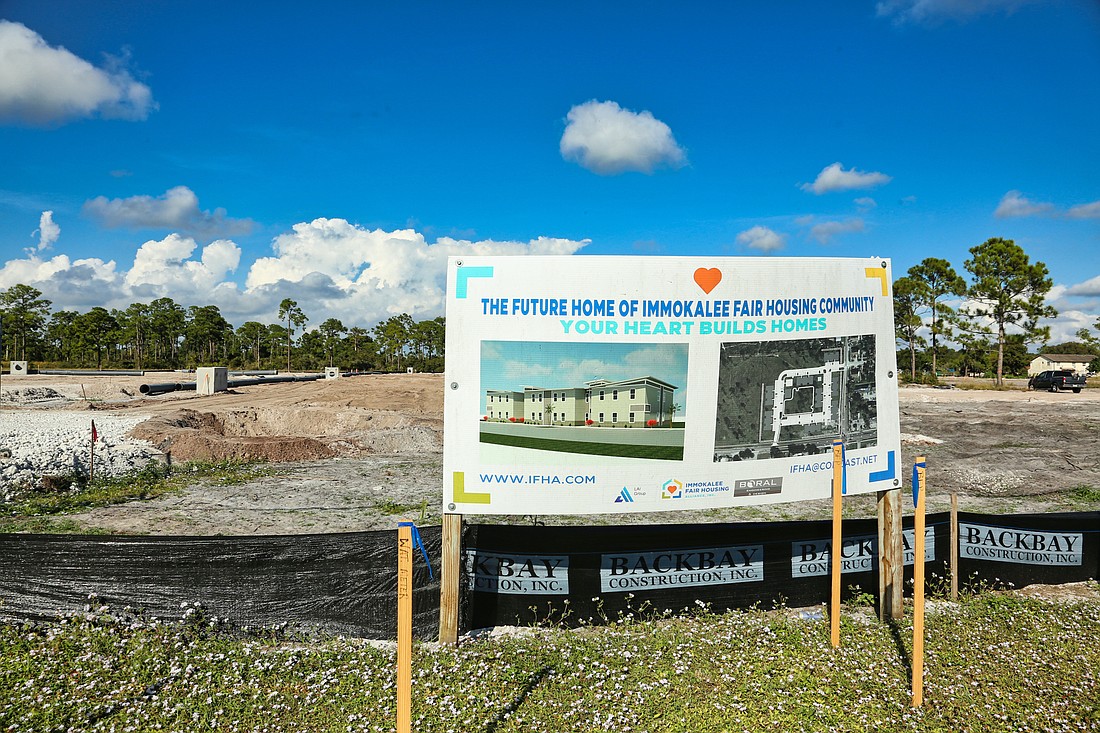- December 13, 2025
-
-
Loading

Loading

Sitting on the corner of Lake Trafford Road and 19th Street in Immokalee, the construction site sticks out. It’s a big development. The property has been cleared, crews are working and, in just a few weeks, eight two-story buildings making up 128 hurricane resistant, two- and three-bedroom apartments will slowly begin to appear.
For those who live in bigger cities, this, seeing a large patch of land cleared out and crews roll in, is part of everyday existence, as common a site as a Starbucks or McDonald’s or Circle K on a street corner.
But here, in Immokalee, one gets the sense a project this big is something different, something out of the ordinary. To the observer shooting down Lake Trafford, it’s the size — 9.5 acres — that makes it stick out.